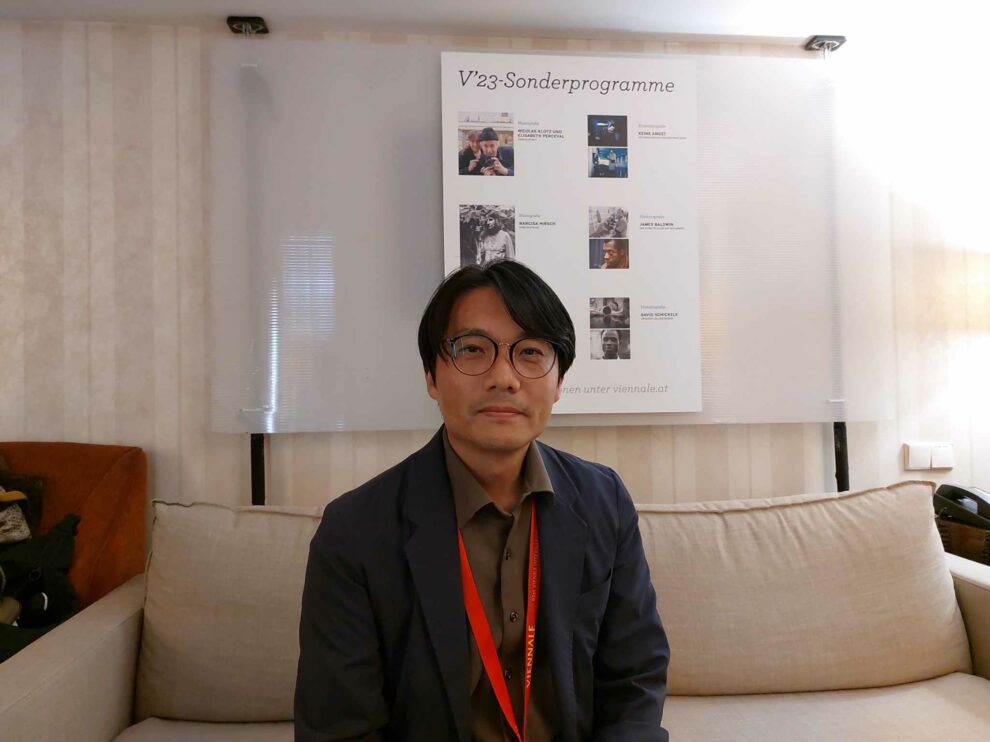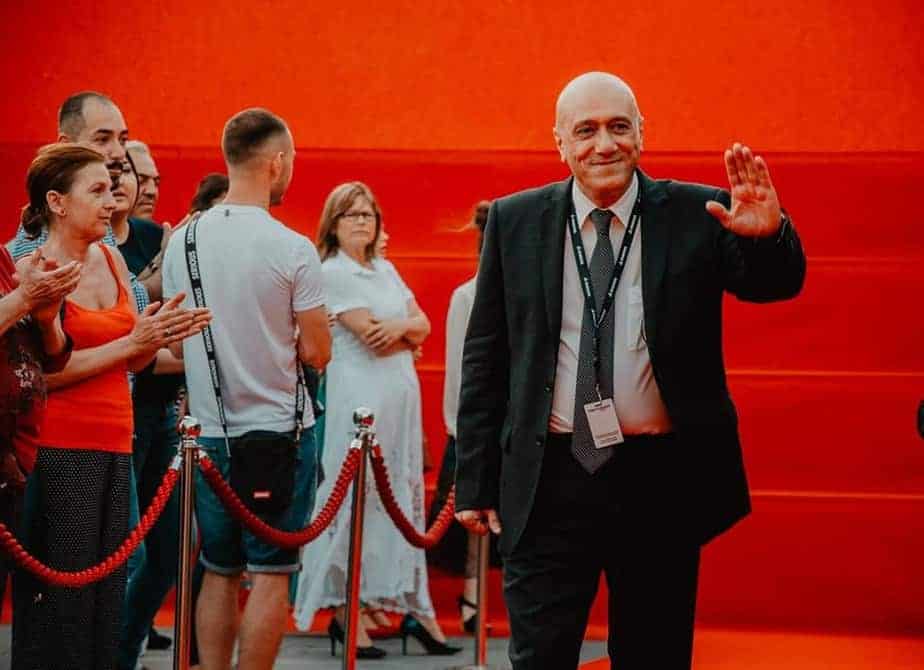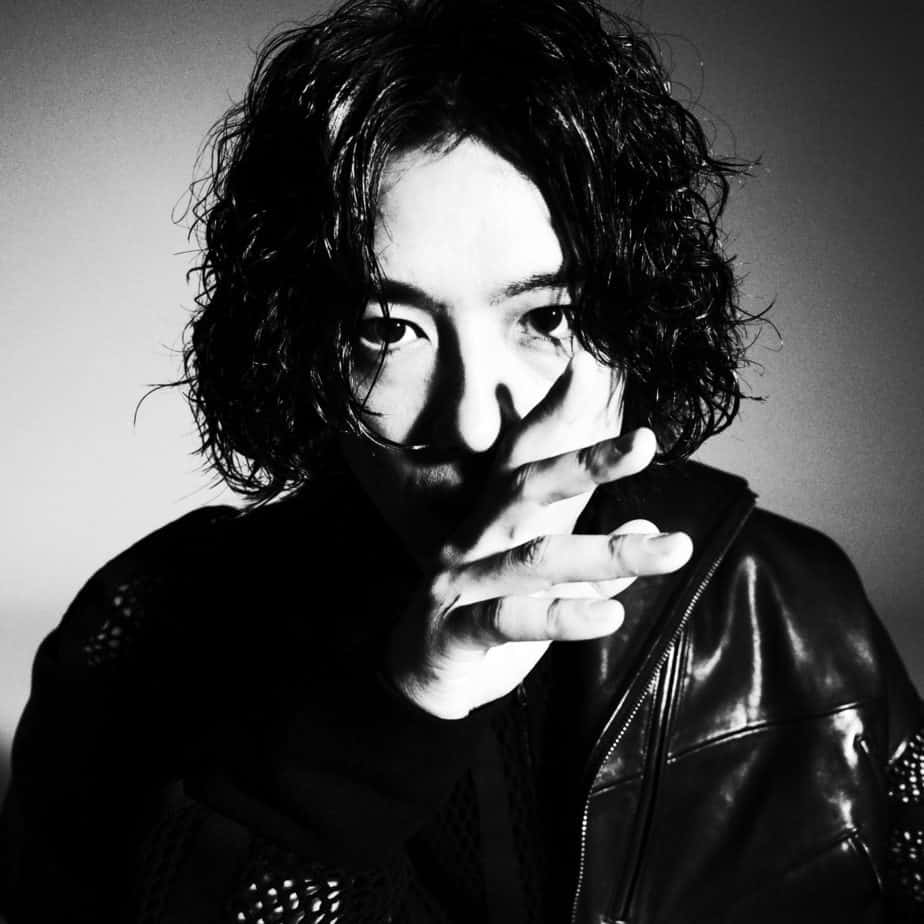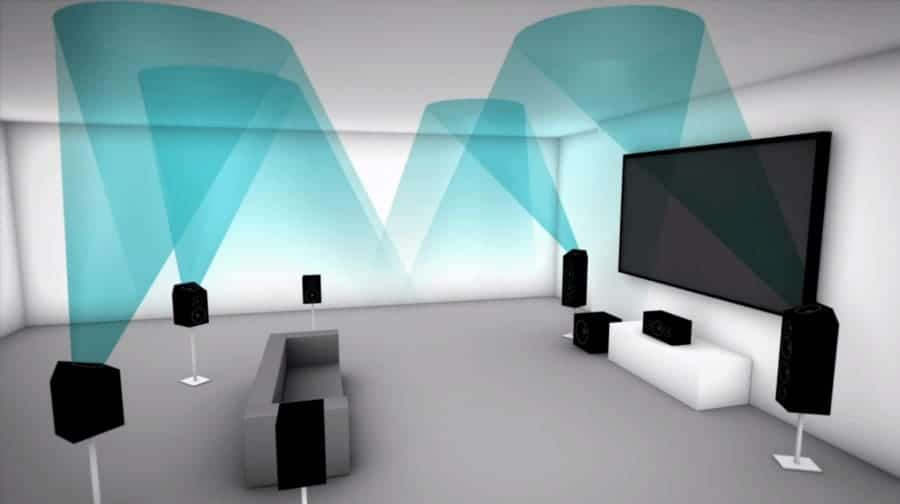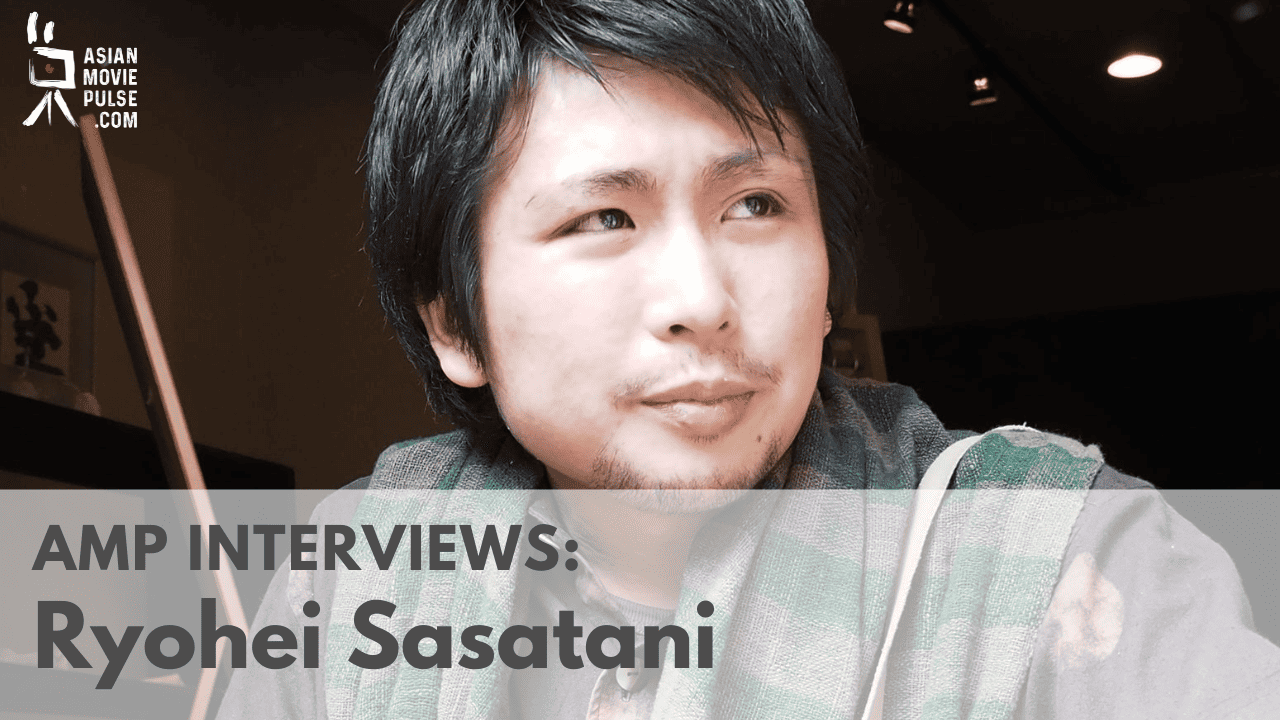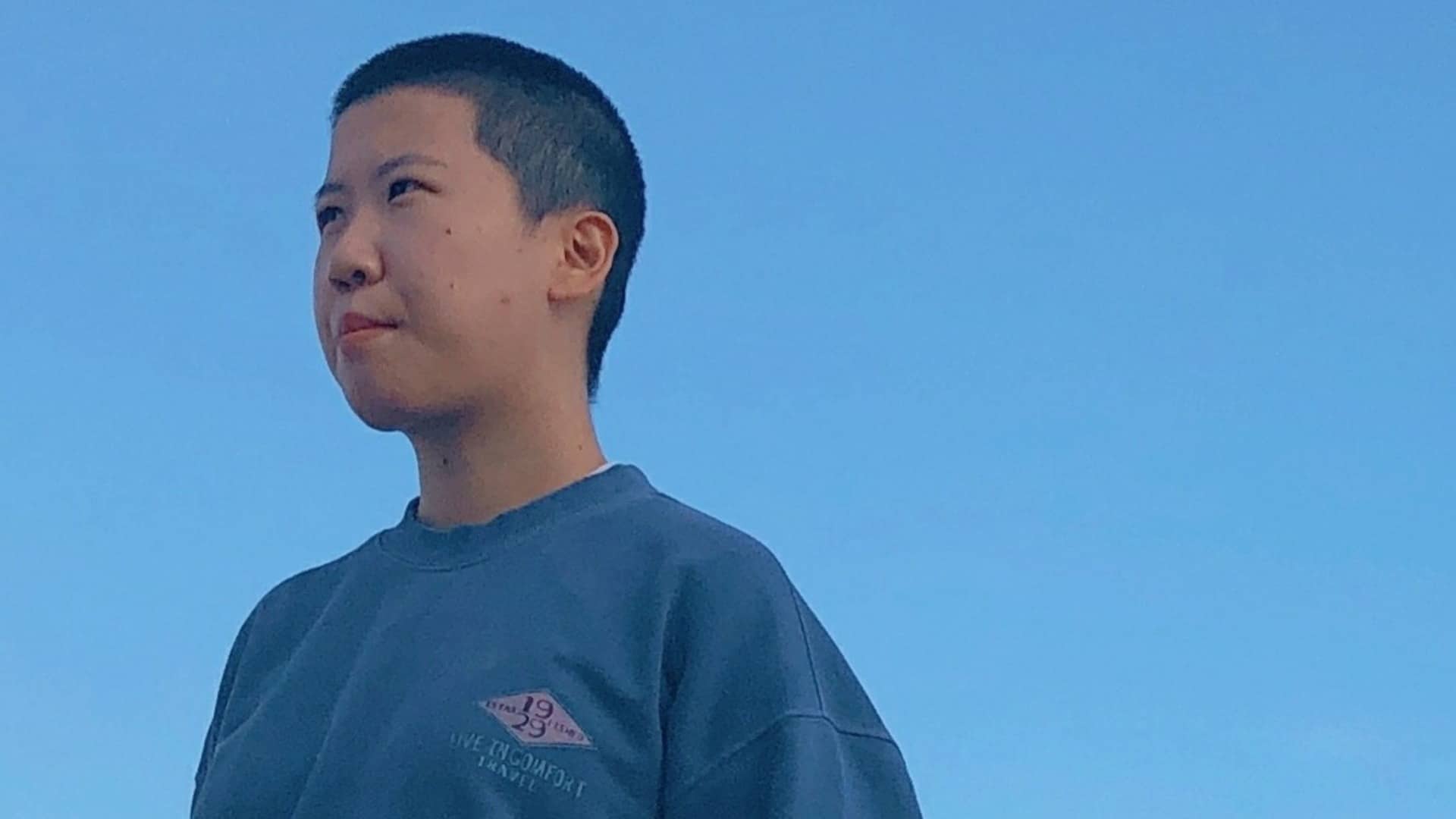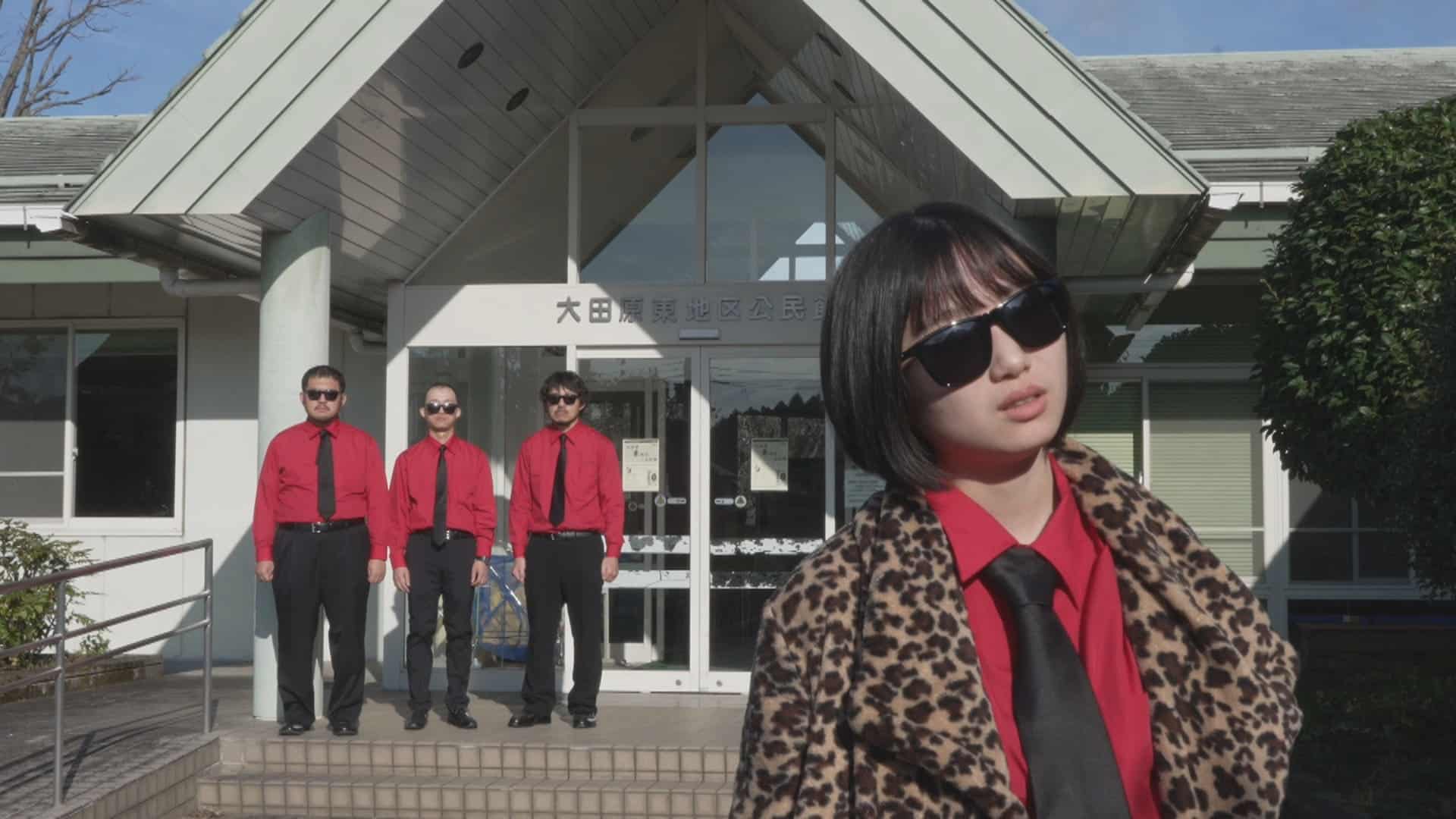Kyoshi Sugita's fourth feature Following The Sound about four people coming to terms with great personal losses had its world premiere in Venice Film Festival‘s Giornate Degli Autori competiton programme earlier this autumn. Like in his previous films, Sugita makes use of his great understanding of sound or absence of it to craft a compelling story that this time centers around a young woman who, still greaving her mother's passing, makes bond with people who's been living with the same pain.
The Japanese helmer came to Viennale to present his movie to the Austrian audience, and we took the opportunity to sit down with him and talk about his love for the hidden codes of human emotions, the welcoming opportunities that a static camera offers and about turning inner insecurities into one's advantage.
Could you tell us something about your trademark use of sound to create a form of acoustic setting for the narrative?
My personal experience during the studies was crucial in establishing that practice. May I tell you the long version?
Please do.
During my studies, I met a colleague who had previously spent a long time in New York. She asked me if I were interested in founding a contemporary dance company with her. She gave me a number of books, magazines and videos related to contemporary dance to study them because I had barely any knowledge about it. The most interesting material that I was given by her were the taped audio recordings of different sounds that she brought back to Japan from New York. I listened to all of them, and was mighty impressed, although what I heard was the mundane life with barely anything exciting going on, caught on those tapes. I could simply understand the potent force of ‘nothingness' that marks our lives. Even though those were not my experiences and they were recorded by someone else, I was caught in them; I was struck by the realization that I could feel all of those memories as if they were my own. Regarding “Following The Sound”, the core story was experienced by a similar sensation. The lead character Haru (An Ogawa) had lost her mother when she was a child, and the only connection the young woman has to her late parent are the recordings from various places. Although she can not meet her mother anymore, the tapes are an evidence of her whereabouts in the past. It's an acoustic connection between the two.
More so than the sound, silence connects all four main protagonists of the film who have one thing in common – an immense loss. How can you express so much without words?
Check also this article
There is always a moment in life when you can catch with a glimpse of an eye how people react to spoken words or situations: they bow their heads, touch the root of their noses, look in the distance. Those reactions are unconscious and precious to the observant eye, and for me precisely such spontaneous moments are those that define us because they show real emotions. That is why I do not always have everything under control and why I can not define everything beforehand. I think that the driving force of the movie is the actors' spontaneous reactions to the script during the shooting. Each one of them did a lot of things out of impulse, which is why their body language comes across as very genuine. Emotions are boiling and eventually, they are set free. In my opinion, this is how the connection gets established.
How much did you stick to the script, and how many liberties did your actors have in interpreting their roles?
I did not discuss roles with the actors. I was approached by my producer Misaki Kawamura with the script, and since I was not sure what kind of film he wanted from me, I asked him about his vision. When he told me I had open hands to do what I wanted with it, I addressed An Ogawa regarding her character. I was not sure in which direction I was going to go, but since I really wanted to shoot the film with her and she okayed it, I decided that we were going to start with her input. What I can spontaneously think of right now is that when I was already finished with the script, she told me that she was shocked how much I already knew about her. She thought that I somehow creeped into her head. So, I did write the script, but after she had read it she started thinking about her life.
Why do you always wait for the ideas coming to you instead of plotting your own scripts?
Before we go any deeper, I would like to say that I have no confidence in myself. On the other hand, I have this ability to recognize the charms of one person or the area. I am good at recognizing the beauty of people and settings. Precisely for this ability to recognize the attractiveness, I feel that I can bring lots of interesting characters to a special place to show the beauty of a commonplace. For me, making a movie is all about it. If you ask me, there is not a big difference between watching a movie in a theatre and shooting it. To illustrate it plastically, I always have to sit in the first row to see and hear everything, which is what makes my DoP nuts when he has to deal with my head in front of the camera. They go like “we can see you head, man”.
Speaking of which, the camera is static, and there are multiple characters and objects (bycicles, animals and cars) crashing the image and walking into the frame.
That had something to do with the silence, because I wanted to catch the smallest changes in the main protagonists' reactions. A long time ago, I read a book about the act of taking photography in a manner of a hunter aiming at an animal. When I thought about it, for me the camera wasn't a weapon but a trap, because when you start shooting a film you are not sure why you placed it in a certain way and what it is going to catch. But at the end, I was happy to having included so many things in the frame.


